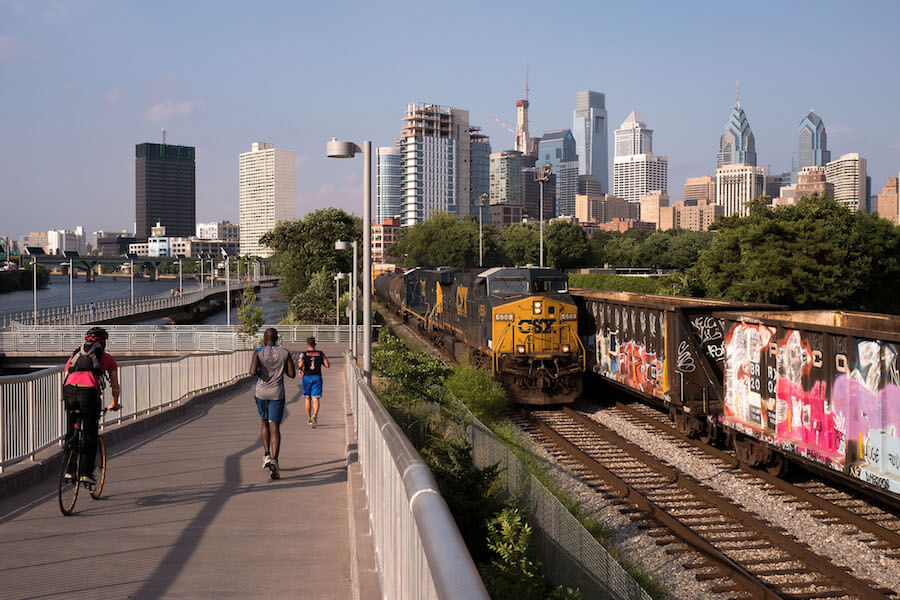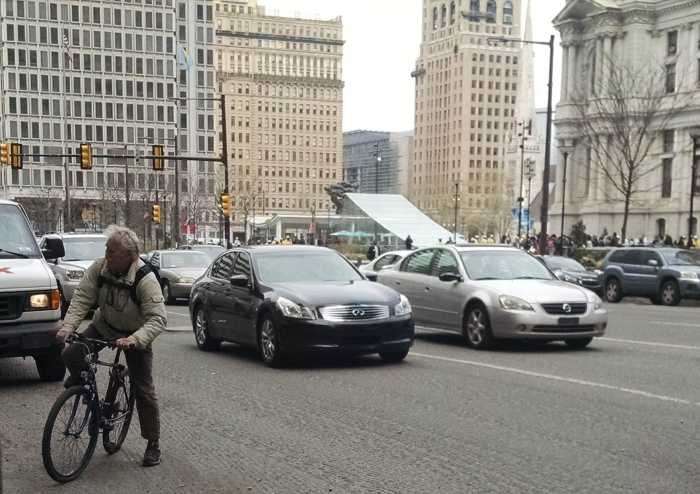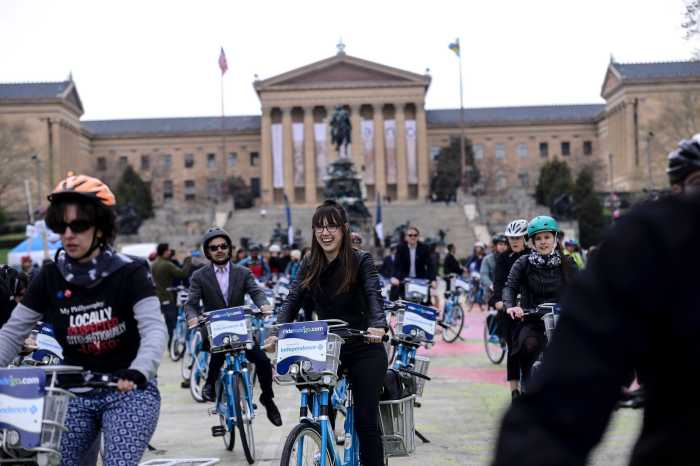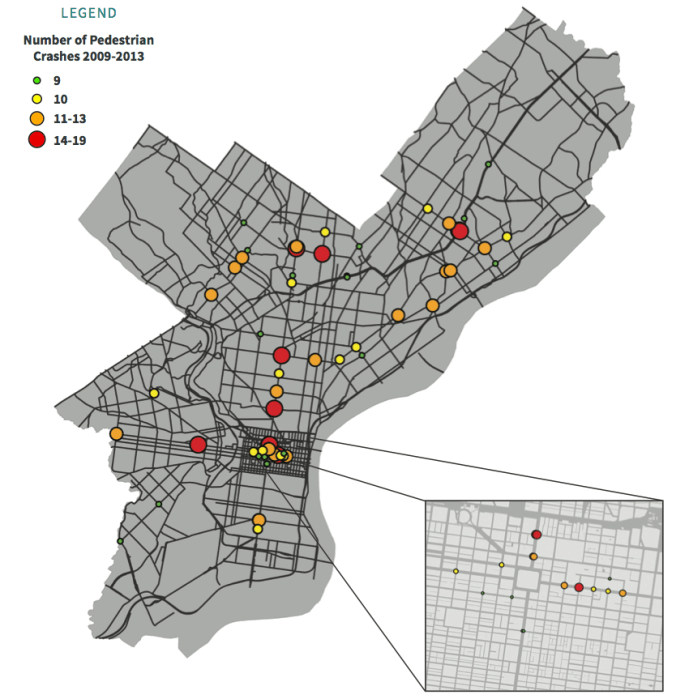Federal transportation funding is important for Philadelphia’s transit, traffic control and signals, pavement resurfacing, safe routes to school and bicycle/pedestrian facilities and, for the city and state’s tourism. But the most recent federal budget “blueprint” proposal from the president would make massive cuts to transportation infrastructure spending, and completely do away with the Transportation Investment Generating Economic Recovery (TIGER) grant program along with a 13 percent cut to the Department of Transportation. President Trump’s proposed budget “eliminates funding for the unauthorized TIGER discretionary grant program, which awards grants to projects that are generally eligible for funding under existing surface transportation formula programs” but keeps “DOT’s Nationally Significant Freight and Highway Projects grant program, authorized by the FAST Act of 2015, supports larger highway and multimodal freight projects.” Get it? More highways, fewer people-ways.
Such a proposal—like much of the Republicans’ reactionary budgetary goals—makes short-term cuts at the expense of long-term gains.
The gains made to TIGER and similar programs would potentially be funneled back into some of the president’s higher priorities, namely the already-bloated military budget and tax cuts for the richest 1 percent. The first TIGER Grant awarded to Philadelphia in 2010 helped create the Schuylkill banks Boardwalk, which is one of the city’s premier biking and walking spots, serving thousands daily as a commuting and recreational path. It was one of 10 trail projects handed out to Camden and Philly that year, which also included the Connector bridge, creating an above-grade way to travel to and from the Schuylkill River from Center City. A more recent TIGER grant award is funding a proposal that will create a more walkable, more bikeable American Street in North Philadelphia. Camden’s grant funds have helped remake the Jersey city’s waterfront and a 2016 grant is set to reinvest in downtown streets. The list could go on. But TIGER grants aren’t just financing great projects. They’re also a more efficient use of our money.
TIGER essentially replaced federal earmarks. Before this program, anyone who wanted federal funding for their projects had to ask their congressperson or senator. Earmarks were approved and disapproved according to clout, and political compromise. The U.S. earmark system infamously funded the “bridge to nowhere” in Alaska. Now, application-based projects compete on a level playing field and are chosen based on the merit of the benefits they provide to the community and the nation.
TIGER arguably funds better projects than earmarks through a more transparent process. Eliminating it saves the nation little and denies municipalities and transportation entities an important source of grant funding to build transformational projects. Randy LoBasso is communications manager at the Bicycle Coalition of Greater Philaldelphia.
Trump’s budget ‘blueprint’ is bad news for bicyclists

Getty Images



























